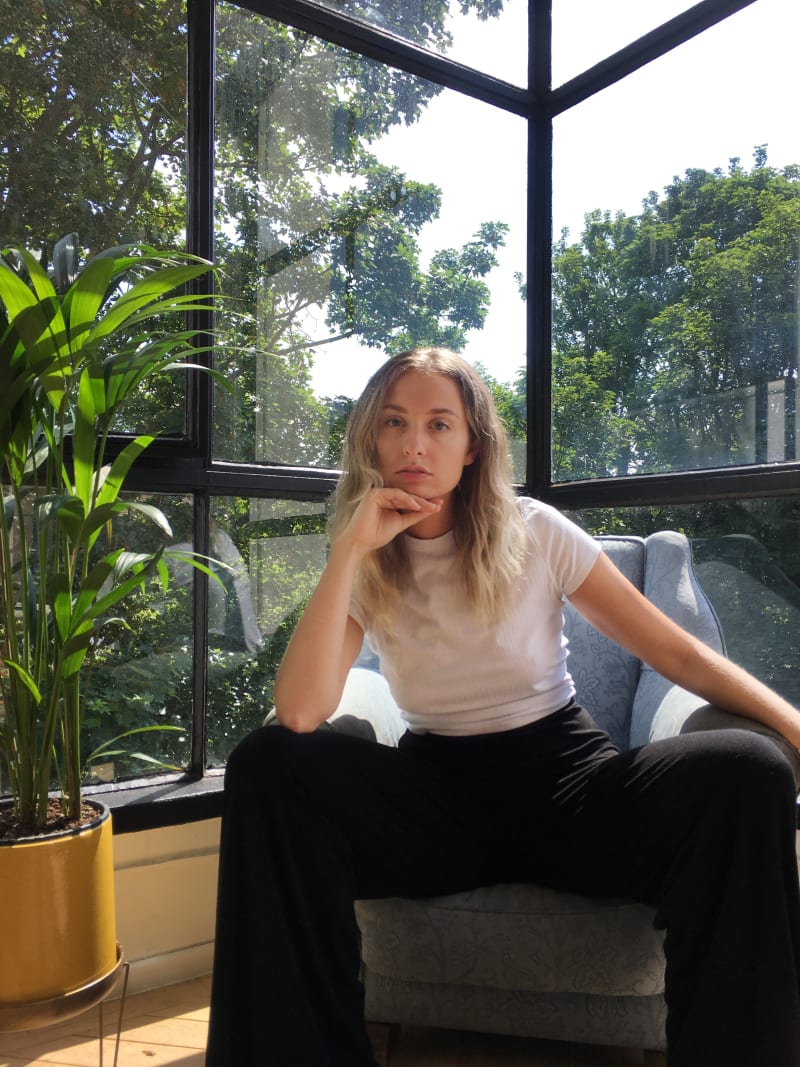
Biography
Mary is a current student on MA Photography at London College of Communication.
Interview
Where are you from in the world?
United States
Why did you decide to pursue a postgraduate degree, and why MA Photography?
The short answer is, I wanted to transition my career into visual arts. The longer answer is I worked in international public diplomacy in Washington, DC for four years before moving to Beirut for a job with the UK Foreign & Commonwealth Office (FCO). For two years, I was the FCO’s communications lead on Syria. Ultimately, I decided I wanted to have a more personal and active voice in pushing for social change, and I believe that art has the ability to change culture. I have always loved analogue photography, so decided to specialise in it as my medium, but really, I would call myself an artist and visual activist.
Could you explain more about the project you're currently working on?
I wrote my dissertation on sexual assault, in which I argue that rape is a social and cultural issue. Art has the ability to change society and its institutions; therefore it can be applied to change the ideological structures that underpin rape. Art can play a role in eliminating sexual assault from society by changing the representation of the victim versus rapist, and by allowing the narrative of rape to be shaped by victims rather than society attempting to exonerate rapists. My autobiographical project works to show the realities of rape, and change how we treat the rapists versus victim, how both are represented, and how we as a society talk about sexual assault.
What has been the highlight of the course so far?
Having a space to really focus on your theory and your practice, and having tutors and classmates that push you to go further and, simply, be better. Never again will we have such an engaged mentorship environment, or a space to focus exclusively on what we’re passionate about. Having the time to pour yourself into passion projects is a luxury.
What is the most valuable lesson you’ve learnt on the course so far?
To be experimental, open to criticism and to trust yourself.
How do you find the facilities available to you at London College of Communication?
The College has incredible facilities. In a single day I’ve managed to use the darkrooms, screen printing, reprographics and book binding. It’s amazing how much we have at our fingertips.
What are the benefits of studying photography in London?
I’m from the U.S., so London as a whole has a plethora of benefits. But I think the best thing for artists about London is the city’s vibrancy. It’s an inspiring place, with constant, pulsating energy.
What are your plans for the future?
I’ve never been one to have a 10-year plan. I like to remain open to all possibilities; it’s how I ended up here. As for now, I will continue working on my visual activism projects, trying to help bring about much needed cultural changes that plague our modern society.
Why would you recommend studying MA Photography?
If you want someone to help you take prettier pictures for your Instagram, this isn’t the course for you. If you want to expand your practice, push boundaries, dive into research, develop your own theories to ground your work in, and ultimately support your practice with research and theoretical contextualisation, this is the course for you.
Related area
Visit the MA Photography course page.
Links
To read more about Mary's work, visit her website.